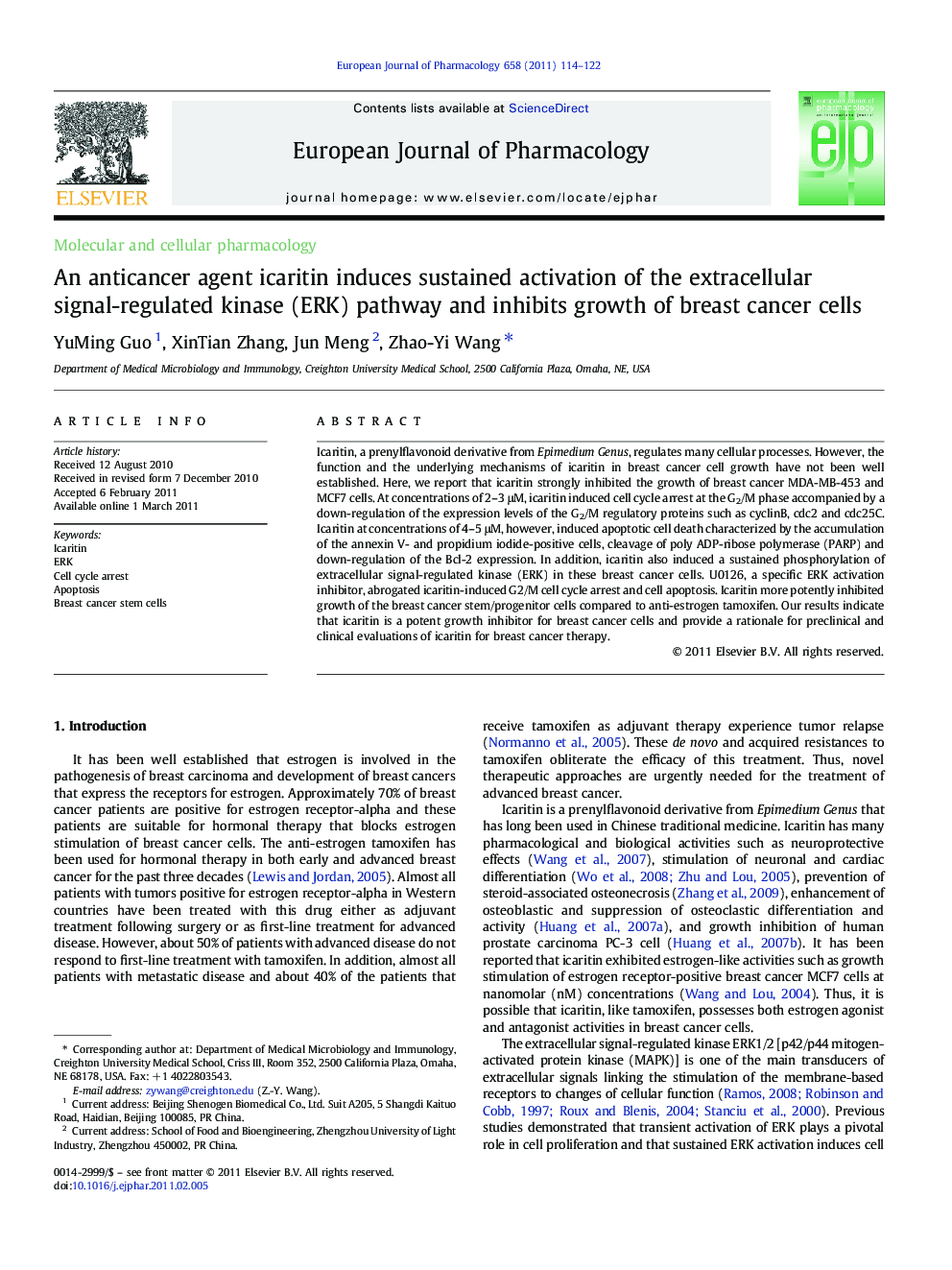| Article ID | Journal | Published Year | Pages | File Type |
|---|---|---|---|---|
| 2532936 | European Journal of Pharmacology | 2011 | 9 Pages |
Icaritin, a prenylflavonoid derivative from Epimedium Genus, regulates many cellular processes. However, the function and the underlying mechanisms of icaritin in breast cancer cell growth have not been well established. Here, we report that icaritin strongly inhibited the growth of breast cancer MDA-MB-453 and MCF7 cells. At concentrations of 2–3 μM, icaritin induced cell cycle arrest at the G2/M phase accompanied by a down-regulation of the expression levels of the G2/M regulatory proteins such as cyclinB, cdc2 and cdc25C. Icaritin at concentrations of 4–5 μM, however, induced apoptotic cell death characterized by the accumulation of the annexin V- and propidium iodide-positive cells, cleavage of poly ADP-ribose polymerase (PARP) and down-regulation of the Bcl-2 expression. In addition, icaritin also induced a sustained phosphorylation of extracellular signal-regulated kinase (ERK) in these breast cancer cells. U0126, a specific ERK activation inhibitor, abrogated icaritin-induced G2/M cell cycle arrest and cell apoptosis. Icaritin more potently inhibited growth of the breast cancer stem/progenitor cells compared to anti-estrogen tamoxifen. Our results indicate that icaritin is a potent growth inhibitor for breast cancer cells and provide a rationale for preclinical and clinical evaluations of icaritin for breast cancer therapy.
